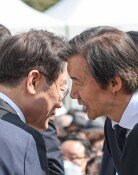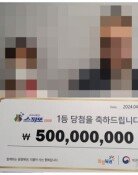Controversy Over Scope of Pro-Japanese Collaboration
Controversy Over Scope of Pro-Japanese Collaboration
Posted July. 13, 2004 22:12,
The Uri Party decided on July 13 to submit a revision of the special law to probe pro-Japanese collaborators during the Japanese invasion to the National Assembly on July 14. The new revision significantly expanded the scope of the Japanese collaboration probe.
The Uri Party held an assembly meeting and finalized the revision to clarify the special law, which was passed during the 16th Assembly.
In this revision, the subjects of the pro-Japanese probe have been expanded to include any one who served as a second lieutenant or higher in the Japanese army, worked as a county governor, or worked as a superintendent in the police.
Previously, the special law draft included only lieutenant colonels, military police squad leaders, high civilian officers, or high officers in the police.
Former President Park Chung-hee will become a probe subject as a Japanese collaborator if the revision is passed in the National Assembly.
Some point out that it is not justifiable to expand the scope of the collaborator investigation to target certain people. The fact that there is not much consistency in levels collaborator positions over different areas is thought to be problematic. Others worry that the revision will enable the media to cover the subject before the results of the probe are officially finalized, and that leaves a possibility the probe will become a trial by public opinion.
The Uri party plans to process the first draft of the revision by early September before the National Assemblys regular session starts.
The revision also expanded the definition of pro-Japanese acts to suppression of the anti-Japanese movement from the previous definition, which only included suppression of the Korean independence movement.
Any anti-humanitarian crimes conducted to support the Japanese colonial government and the invasion, the destruction of Korean culture and language, and the destruction or drainage of cultural heritage are also included as pro-Japanese acts in this revision.
Previously defined only as, pro-Japanese collaboration through cultural institutions, the concept has been redefined as pro-Japanese acts in culture, art, media, academic, educational, and religious sectors. This new definition will expose media corporations and their owners as subjects of the probe as well.
The probe committees working period has been extended from three years to five years. A clause requiring a probe commissioner as recommended by the Assembly was eliminated so that the president solely has appointment rights of the committee.
Park Geun-hye, the daughter of the late president Park Chung-hee, who is the former leader of Grand National Party (GNP) clearly showed her objection to the revision. She said, There shouldnt be any political intent or purpose behind the revision.
Sung-Won Park swpark@donga.com







